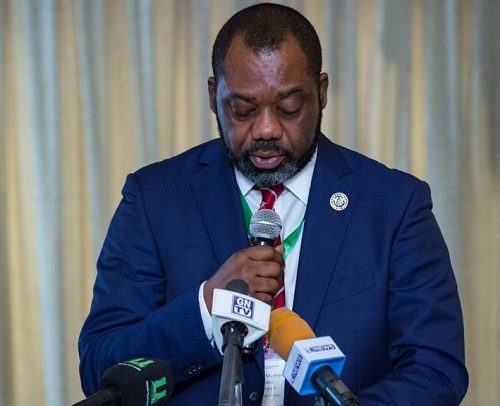Dr. Matthew Opoku Prempeh
The Ministry of Education has launched the Education Strategic Plan (ESP) which seeks to make students proficient between 2018 and 2030 by serving as a guide in the effort to attain Sustainable Development Goal four (SDG4).
The Minister of Education, Dr. Matthew Opoku Prempeh speaking at the 2019 2nd National Education Week in Accra entreated the participants to work within the framework of the strategic plan to build effective partnerships with the ministry.
“The ESP enjoins us to work to achieve 65% of all Primary four pupils being proficient in English by the year 2030 with 37% of Primary four pupils being proficient in English at the moment,” he said, adding “in Mathematics, the ESP’s target is to achieve 50% proficiency rate by all Primary four pupils by 2030 with the Primary four mathematics proficiency rate being 22%.”

According to the minister, “at the secondary level, the ESP target for tertiary qualification rate is 50% by 2030 as the tertiary qualification rate has averaged 25% over the last five years. At the Tertiary level, we have committed to increasing Gross Enrolment Rate (GER) from the current 15.95% to 40% by 2030.”
“We are committed to attaining 60:40 sciences to humanities ratio at the tertiary level. The current science to humanities ratio is 29:71” he emphasized.
The Minister said “whilst I remain optimistic that we can achieve the set ESP targets, lessons from the implementation of previous strategic plans should make the sector open to innovative and creative ways of implementing and financing the ESP.”
The minister noted that “we have grown accustomed to our ways of teaching and delivering lessons, monitoring and supervision, assessment, human resource development and career development among others,” adding “while these approaches have resulted in some modest improvement in the sector, achieving the ESP targets by 2030 requires improvement in learning and access to occur at a faster pace than the current rate of improvement.”
According to him, since 2017 measures have been put in place to address challenges that have hindered the progress of the education sector for many years as they believe those difficult decisions were critical to make access to education equitable and improve quality across the board.
BY Daniel Bampoe


